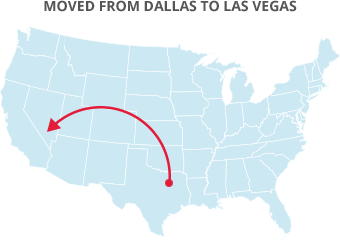

 By Julie DeLong, A-1 Freeman Moving Group
By Julie DeLong, A-1 Freeman Moving Group
Power tools and fishing poles--excuse me, fly rods--and lawn mowers have long been the man's domain, and most men would rather sort and pack their own domain than have a ruthless spouse come through with an armload of trash bags and no regard for the sentimental value of a broken screwdriver. You could take the easy way out and call a professional moving company to pack and move everything for you….in which case you needn't read any further. But, if you're going to pack the garage, workshop and shed for your move, you might appreciate these tips for getting it done.
Gather all the packing and padding supplies you'll need. These are the necessities.
Your local moving company may offer customers used boxes and other moving supplies at an affordable rate, so you may want to check with them before paying full price for supplies at a nearby retailer.
Now's the time to sort through all your tools and get rid of all the duplicates and the things you're never going to use. On your first pass with a trash bag, pick up random bits of cardboard, plastic, rope, papers, and everything else that's just plain trash. Sort through everything and plan to donate, sell, or toss whatever you're not going to use--face it, some hobbies never quite take off and do you really want to move all that old ham radio equipment?
Have a, what's it called? A garage sale to get rid of all the stuff you don't want or donate usable stuff to an organization like Habitat for Humanity. They'll come pick it up.
You're right, packing up a kitchen is easy--everything fits in boxes. Shovels and lawn mowers, not so much. Get creative with packing large, awkward, and unboxable tools and toys. Be creative with padding and packing, use anything around the house that meets your needs--there really are no rules here.
Batteries, paint, solvents, fertilizers, and any fuels are not allowed on moving trucks, and it's not a great idea to transport them in your car. Leave paint for the new owners, donate anything that's usable to your local Habitat for Humanity, and properly dispose of the rest. Your county landfill may have separate areas for things like batteries, computers and other electronics, and flammable liquids.
You should start packing up your toolshed and garage as soon as you know you're moving. DO NOT leave it for the last minute as this is the most labor intensive and time-consuming part of moving. And, if you decide that packing the garage, workshop and shed is too much for you to handle on your own, don't be afraid to enlist the help of a professional mover. Give A-1 Freeman Moving Group a call today!
Request a free quote

